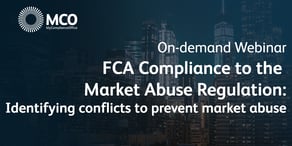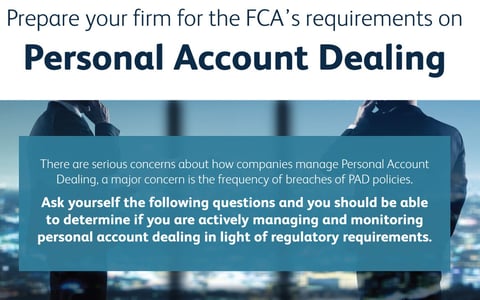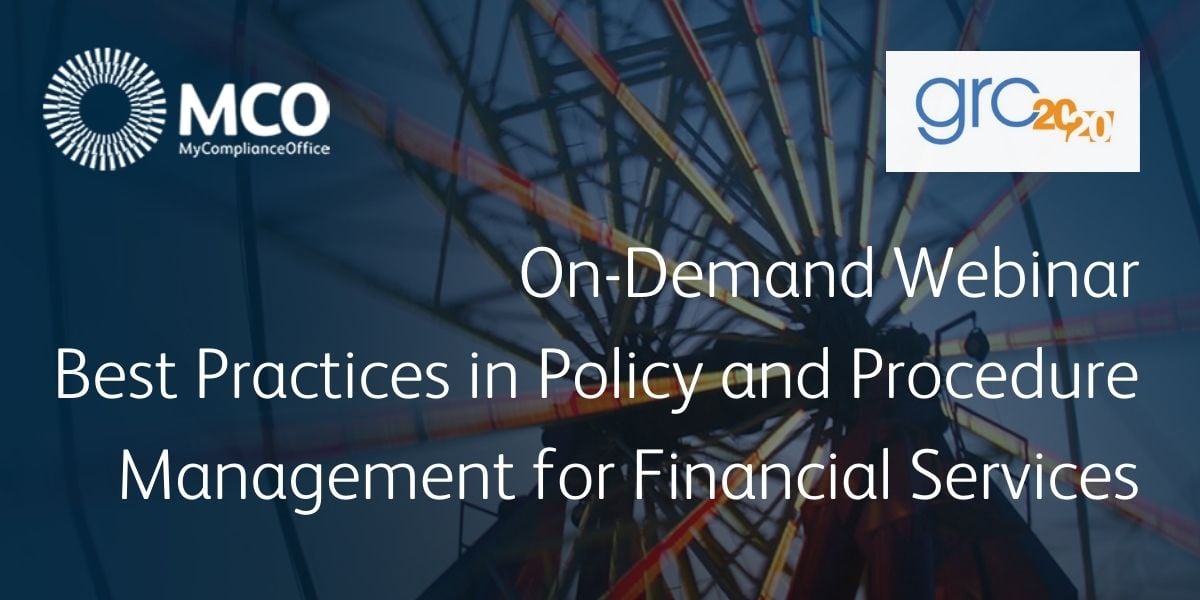Automating the monitoring of personal trade accounts requires the capture of trade data in an electronic format. Data capture is an important topic and one that is not always fully understood. Typically, firms begin data capture by acquiring direct feeds from the major brokerage firms. This can resolve 60-70% of trade capture needs for US accounts. A good start, but significant challenges remain; the 30-40% of US accounts that are not captured as well as the non-US trading activity, typically 80-90%.
Why do Personal Trade Policies Typically Require Capture of Executed Trades?
The SEC requires firms to review their employees’ trades on a quarterly basis. Many other regulators expect “appropriate” policies and review of employee trades that will check for conflicts of interest. For multi-jurisdictional firms, the SEC quarterly review requirement frequently becomes the standard global policy and it follows current best practices. The quarterly review is very difficult to conduct manually. Larger firms are often expected to have an automated system for conflict checks against personal trading policies, which is challenging electronic data capture.
Considerations for the Approach at your Firm
Implement a designated brokerage policy
The implementation of a designated brokerage policy can alleviate the data capture challenge. Firms can approach this in several ways. They can require employees to trade at certain brokerage firms or they may have their own internal brokerage entity and will require employees to only trade at that “tied” brokerage firm. Others may designate several brokerage firms with which an employee can trade. These are usually brokerage firms that provide automated feeds. This practice encourages large brokerages to provide direct brokerage feeds to the industry so that they don’t “lose” accounts because they can’t be part of a designated brokerage policy (especially of valuable investment employees with high net worth).
This policy can be helpful in reducing the non-direct feed accounts. However, this is only feasible for US accounts as direct feeds are very limited in availability outside the US. Also, many firms using designated brokerage firms, still end up managing a significant number of “outside” accounts from other brokerage entities, as policy exceptions are frequently made. This happens frequently with senior employees or where there are trading activities or securities not available from the major brokerage firms on the designated list. Consequently, firms still have a challenge capturing trading activities from those accounts that are not available on the designated feeds.
Automate through direct brokerage feeds where available
Unless you have a very small number of accounts across the firm with a brokerage firm that is willing to provide feeds, MCO recommends that clients maximize the number of direct feeds. We work with many brokerage firms that will provide feeds (majority are US) and will automate any additional feeds that other brokerage firms are willing to provide to the industry.
Accounts not available in direct feeds: US accounts vs rest
For the remaining, non-feed employee accounts, it is important to differentiate on approach between capture of US accounts and non-US accounts. The SEC requires any brokerage entity in the US to provide a copy of trading activities and statements to investment industry employers who need to track employees’ trading activities. This means that you can always get an “independent” copy of trading activity for the account. Where a direct feed is not available, this is typically in the form of a mailed, paper-based trade confirm and statement for those accounts declared by the employee.
Challenges with non-US accounts
For non-US accounts, there are two primary challenges;
- Very limited direct brokerage feeds
- There is not always an independent verification source (like in US where they will send a copy of the trading activity to you). Although some brokerage firms might be willing to send you copies under certain circumstances, it is NOT consistent and cannot be relied on.
Role of employees for non-US accounts
As you cannot consistently get copies of contract notes and statements of accounts outside the US, you will need to employ some form of employee self-certification. They are the only ones who can provide you with the executed trades in some circumstances.
When to ask employees to self-certify: trade preclearance
When do you prompt the employee to indicate when they have traded? Your policy on pre-clearance of personal trades is key in this process. If an employee pre-clears their trade on MCO, we know they have planned to trade and can use MCO to prompt the employee to confirm what occurred and attach an electronic version of the contract note.
If some or all accounts don’t have a pre-clearance process, then you can have a periodic (e.g. quarterly or annual) attestation process where you can ask them to either enter trades manually and/or attach contract notes.

During a webinar with CeFPro we discussed Personal Account Dealing and its policy under FCA Rules and the Compliance experts commented on the pressure from the FCA to manage personal trades in practise in addition to practical challenges firms face to manage personal trades. If you are interested in this discussion you can watch the webinar recording and send us any question you may have regarding the topic.
A Key Decision
Typically, you will want all trades to be captured electronically so that all rules can be run consistently and manual review is not required. Also, when captured electronically, holdings can be automatically adjusted from the trades captured electronically. One key decision is whether you want to have independent entry of trades from the trade confirm/contract notes that are captured from the employee or do you want to let the employee manually enter or confirm. You can decide to let employees self-certify and when they either (a) confirm what they did from a pre-clearance or (b) enter a trade manually for a periodic certification.
MCO provides many options to our clients to capture executed personal trades. If you'd like to learn more about our personal trade software or need guidance on the alternate methods, please contact us.
Read further about the topic and download our infographic FCA requirements on Personal Account Dealing Compliance.





